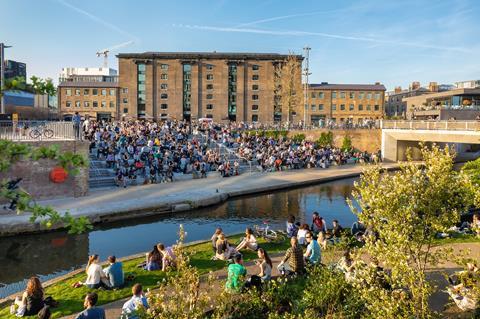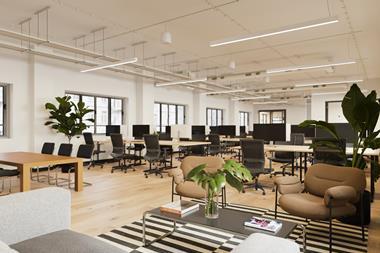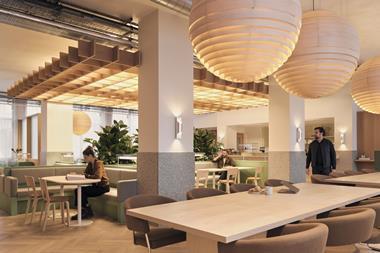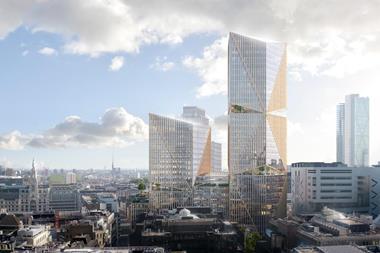To return or not to return? When to return and how? These are the questions being asked in homes and boardrooms alike.

Research and polling have come up with mixed responses so far: central London appeared to bask in a ‘September moment’ and industry leaders have branded work from home an “aberration”. Meanwhile, a recent poll from YouGov found that most office workers weren’t keen to ever return to the office full time.
This may suggest a dichotomy between the wishes of business leaders and their employees, but on closer inspection, the chasm is not so wide. Crucially, most office workers do want to return to the office, just not full time.
The current state of flux presents a great opportunity to build back better (if I can borrow that phrase) – to create inclusive, dynamic and sustainable places that evolve to meet the changing demands of the modern world.
As King’s Cross (pictured) celebrates its 10-year anniversary this autumn, we continue to hold these key principles close to our hearts. We have all changed the way we interact with real estate, shop, live and work. So how do we create spaces where people actually want to be?
Arguably, office workers have never been more empowered. If businesses don’t lean in to changing working patterns and embrace the more dynamic future of the workplace, they risk a brain drain to other, more progressive alternatives.
We also shouldn’t undervalue the benefits of being in the office – a space that’s crucial to community, creativity, learning and development. It is an important tool to enhance staff wellbeing and mental health. That said, we need to monitor the unintended consequences of remote or dynamic working if we are to create more inclusive workplaces.

Businesses need to ensure that a diverse spectrum of voices are heard at the table – virtually or physically – to support strong decision-making and avoid group-think. The workplace has an important role to play in this.
When we do leave our homes and venture to the office, we need more from that place than ever before. The underlying fundamentals of connectivity, space and amenities haven’t changed. But there are now much greater demands on the workplace. It must enrich the lives of those who use it.
During the pandemic, many grieved for the cities they used to commute to. I certainly saw our customers less, but the need to navigate this new era and understand evolving business needs allowed us to become closer than ever before. It was an opportunity to re-engage with our customers and reflect on the renaissance of the office.
The last year has meant the greater good has come more sharply into focus. Spaces take on a new significance; they mean more because we’re there less. They must reduce their environmental impact but maximise their positive social value. At their heart, workspaces of the future should be like a theatre stage – a blank canvas to act on. After all, the only thing that is certain is change.
Helen Causer is office lead at King’s Cross






























No comments yet